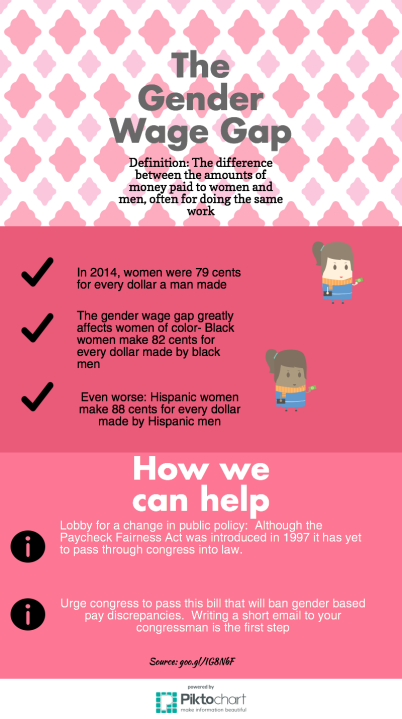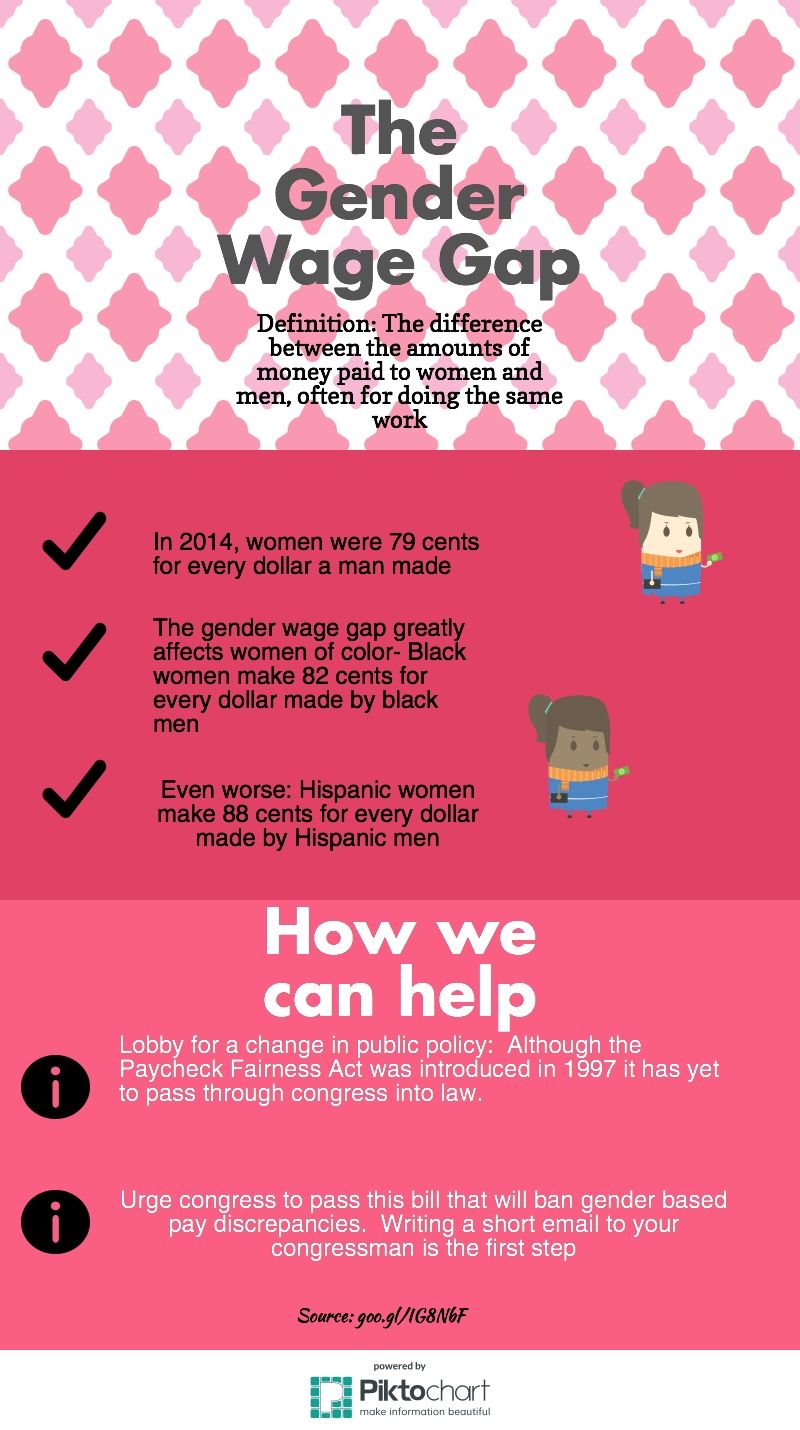When my mother became a police officer in the 80s it was still looked upon as unusual. I would notice other moms who dropped their children off at school in tennis attire would stare condescendingly at my mother in her uniform as if it was abnormal to be in the line of duty as a woman. And that is the problem; we have it instilled in our minds from a young age that traditional male-dominated roles are out of bounds for women and that we should stay in the silent subservience of our male counterparts. This mindset fuels the diminishment of women in the workplace. This is why currently a little over 30 percent of Americans still feel women should stay home full-time to take care of their children.
March 8 is International Women’s Day when we renew our commitment to women’s rights. The right to work for fair pay is a key right.
Throughout history women have been the backbone of society; always working behind the scenes, always working twice as hard to become a powerful competitor in a world that men mostly dominated. Up until the 1960s, jobs were categorized in newspapers as gender specific. Some even were identical postings but with different pay for women.
When the Equal Pay Act passed on June 10, 1963, there was a small uptick toward more equal pay for women. It was a large step for women towards equality in all areas. Women would then be able to deviate from traditional “female” roles. A second important step forward for women’s equality was the Lilly Ledbetter Fair Pay Act, the first law signed by President Obama. Finally, with these two laws, we were not working behind the scenes anymore but unfortunately we are still working twice as hard to be heard in 2017.
Many people might think that because the wage gap has improved from women making 59-64 cents for every dollar men earned, that it is a major accomplishment and we should leave it as is. But there is still is a gap.

According to Pew Research women who enter male-dominated careers see a drop in pay as well. The research also goes on to state that 77 percent of women and a measly 63 percent of men feel “this country needs to continue making changes to give men and women equality in the workplace.”
These numbers should be much higher than even 77 percent. We need to stop being stifled by “good enough,” which seems to be the motto our country is living by as of recent. While only 77 percent of women feel there needs to be a change in how we are paid, we are also earning 77 percent less than what our male counterparts make according to The White House. This is just another way that women are looked at as inferior when we are the solid force working twice as hard to be seen as a fierce competitor.
In addition, other constraints on women are in the news. Women’s reproductive rights are in question. Family leave for birth, adoption and to care for the elderly are made difficult for women.
Loquitur is grateful to those who inspired us to deviate from this notion that we must accept what we are given, but especially to the women in our lives who have taught us to never settle, never back down from adversity and to never quit working for what we believe in. Each March is a celebration of strength, tenacity and perseverance of the women who have made history and to those who are currently making it.
To all the women who have fought over the years to bring us closer to equality, who have pushed gender roles and who have demanded what they deserve, thank you. And to all those still working every day for our rights and voices to be heard, who advocate for those who cannot and who will be the change-makers, thank you. Our work is not done yet.



